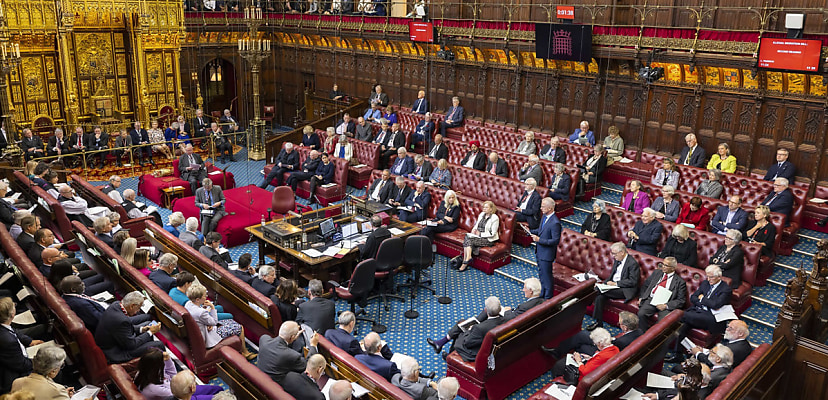The UK House of Lords has turned down government requests to allow tech companies to train their AI models using copyrighted material.
For the fourth time, the House of Lords voted against a change to the Data (Use and Access) Bill, which would make it legal for tech giants to use music, creative works and other copyrighted content they have “legal access” to.
As part of the plan, creators would be required to actively opt out to prevent AI firms from training their models on their content.
However, in its fourth attempt to amend the bill, the government was denied the changes. The bill will now return for discussion in the House of Commons.
The proposed changes have been heavily critiqued by peers, who voted 242 to 116 for changes that would make the bill more transparent and would notify creators when their work is being used for AI training, a recommendation previously pushed by the House of Lords, only to fail.
British musician and icon Sir Elton John slammed the government for the plans, saying he felt “betrayed” by the current government and prime minister, who he has otherwise been a supporter of.
“The government are just being absolute losers, and I’m very angry about it,” he said.
“The danger is for young artists, they haven’t got the resources to keep checking or fight big tech. It’s criminal, and I feel incredibly betrayed.
“A machine ... doesn’t have a soul, doesn’t have a heart, it doesn’t have human feeling, it doesn’t have passion. Human beings, when they create something, are doing it ... to bring pleasure to lots of people.”
Despite the pushback, the House of Commons, which has a government majority, continues to refuse changes to the bill to increase transparency, an unusual move as the government loses support from voters and the opposition gains it.
The government’s push is likely fuelled by pressure on tech giants and the race to lead the AI industry. These tech companies believe that AI developers should have access to all data unless creators opt out.
Meta’s former president of global affairs, Sir Nick Clegg, believes that asking permission for every single copyright order would “kill the AI industry in this country”.
While former Bridget Jones: The Edge of Reason director and crossbench peer Baroness Beeban Kidron said the government would be “knowingly throwing UK designers, artists, authors, musicians, media and nascent AI companies under the bus” by approving the bill, calling it “state-sanctioned theft” from the UK’s £124 billion creative industry.
Elton John and other musicians, including Paul McCartney, Dua Lipa, Ed Sheeran, Florence Welch, and Coldplay, have echoed this idea of AI turning to industry theft with the new bill in a letter asking the government to update copyright laws. The artists are not against AI, but they want to protect their copyrighted material.
“Creative copyright is the lifeblood of the creative industries. It recognises the moral authority we have over our work and provides an income stream for 2.4 million people across the four nations of the United Kingdom. The fight to defend our creative industries has been joined by scores of UK businesses, including those who use and develop AI. We are not against progress or innovation,” said the letter.
“The creative industries have always been early adopters of technology. Indeed, many of the world’s greatest inventions, from the lightbulb to AI itself, have been a result of UK creative minds grappling with technology.”

Daniel Croft

